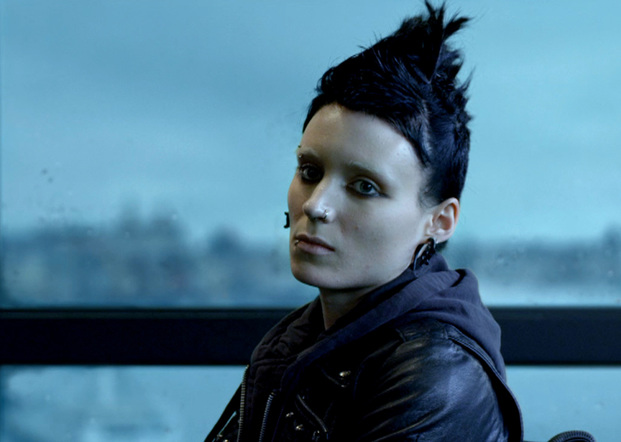|
THE GIRL WITH THE DRAGON TATTOO is a film that explores the theme of anger in its very core and within the main character Lisbeth Salander (Rooney Mara). Her persona initially seems very angry and cold, but eventually is revealed to be much more complex. While the plot of the film mainly involves the mystery of the disappearance of Harriet Vanger, Lisbeth’s subplot explains a lot of her hatred towards people around her. The anger we see in her is played out in revenge enacted against her legal guardian Bjurman (Yorick van Wageningen), who rapes her and takes advantage of her reliance on him.
Lisbeth’s rape occurs when she needs extra money from Bjurman, who manages her accounts. Having been forced to perform sexual acts on him before, she expects more of the same and still have relative control. This time, however, Bjurman knocks her out, ties her to the bed and brutally rapes her. Lisbeth immediately begins plotting her revenge, returning to his flat under the pretence of needing more money, before using a taser on him, tying him up on the floor, and forcing an large metal object into his anus. In her revenge she ultimately rapes Bjurman back. While the audience are encouraged to align with her, it brings up an important question: is her behaviour justified? After all, while he did rape her, her actions do not resemble true justice in the eyes of the law. As her guardian, Bjurman was meant to care for her, so she no longer trusts the institutions meant to protect her, and decides to take justice into her own hands. However, she does show more feeling than her guardian. Bjurman rapes Lisbeth without pause, with no moments where he appears to question his actions. Lisbeth shows a clear disgust at the action she has chosen to take, retching as she watches his anguish. This shows that Lisbeth is not of the same ilk as Bjurman and she realises the horror of the situation. Her anger does not consume her other emotions and she remains aware of her actions. Lisbeth’s anger eventually transforms into something which may bring about something good, when Lisbeth tattoos on Bjurman’s chest: “I am a rapist pig”. This is intended to stop him from raping other women, serving as a constant reminder when he looks in the mirror. She cares for other women around her, knowing how painful it was to go through what she did. On the other hand, the revenge may not be a moral feeling in Lisbeth’s case as much as a way for her to justify her actions. As the film progresses, her anger continues to play a dominant role in her emotions, particularly towards men. She has a great mistrust for them all, stemming from her father who abused her as a child. Bjurman took on a father figure in her life then chose to exploit her too. In this way, Lisbeth’s revenge against Bjurman can be read as a response to her father. Ultimately, the audience are led to see the justification in her anger. While her actions are fuelled by the anger she feels, her decisions appear to be controlled and about more than just herself, but protecting Bjurman’s potential future victims. More short reads about ANGER >>> |


